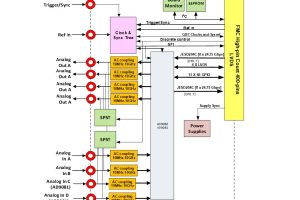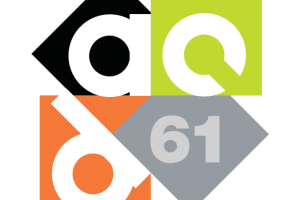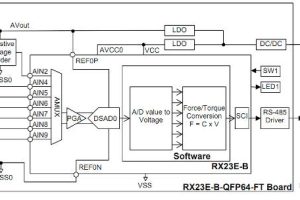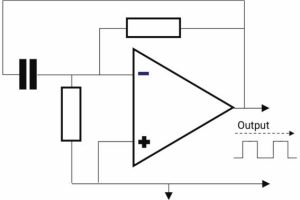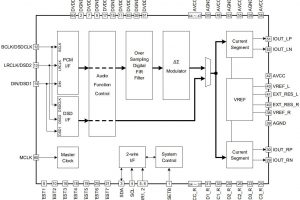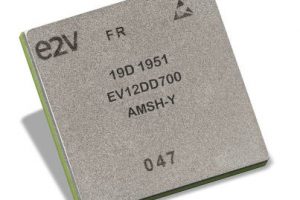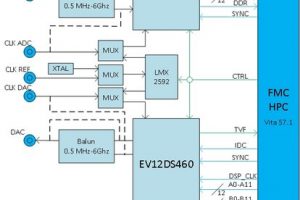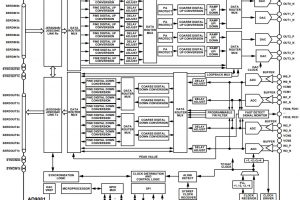Abaco Systems latest analogue front-end mezzanine card for FPGAs has been tailored for software defined radio, as well as electronic warfare, radar, test and measurement. FMC300, as it will be known, has 7GHz of usable analogue bandwidth, claims the company, with multiple channels offering up to 12bit 6Gsample/s ADC and up to 16bit 12Gsample/s DAC through a JESD204B/C interface. Data ...
Tag Archives: dac
DAC 2024
The Design Automation Conference (DAC) is the long-established event (celebrating 61 years in 2024) for the design and design automation of electronic chips to systems. It offers networking opportunities as well as training, education and exhibits for designers, researchers, tool developers and vendors. Members from more than 1,000 organizations are represented by system designers and architects, logic and circuit designers, ...
Renesas ups 24bit ADC performance in 32bit MCU
Renesas has revamped the high-accuracy analogue front-end in its 32bit RX microcontrollers. Implemented in RX23E-B MCUs, the 24bit ΔΣ ADC, depending on configuration, can now convert at up to 125ksample/s – eight times faster than existing RX23E-A MCUs – or achieve a third of the noise – to 0.18µVrms at 1ksample/s. 24bit effective resolution can be achieved at 3.8sample/s. To go ...
IMS: 10GHz bandwidth quad-channel Tx Rx analogue front-end
Analog Devices has released some details of a 10GHz bandwidth analogue front-end, possibly to be revealed in full at IMS in San Diego this week. The 16nm CMOS device is said to have four 12bit 20Gsample/s ADCs and four 16bit 28Gsample/s DACs – and seems like a faster cousin of the 28nm AD9081 released a few years ago – if ...
DAC – where RISC-V thrives and mixed signal design blends in
RISC-V and mixed signal design were strong themes from this year’s DAC in San Francisco, reports Caroline Hayes. At last month’s 59th DAC (Design Automation Conference), a significant announcement was made by Siemens Digital Industries Software. Acknowledging the growth of mixed signal design, and the complexities it brings, the company announced Symphony Pro, an extension to its Symphony suite of ...
Analogue RC Oscillator IP for IC designers
Cambridge-based Agile Analog has announced RC oscillator intellectual property for IC designers. Called ‘agileOSC RC’, it “is based on a traditional architecture which allows the frequency to be trimmed to remove the effects of process variation,” according to the company. It can also be configured as a free running clock where a high accuracy clock is not required. Start-up is typically ...
32bit DAC for Hi-Fi
Rohm has announced a 32bit mono/stereo Hi-Fi DAC, claiming for it a typical signal to noise ratio of 130dB and -115dB THD+noise. Called BD34301EKV, it can accept PCIM inputs from 32 to 768kHz and DSD at 2.8, 5.6, 11.2 or 22.4MHz. FIR filters are provided for: PCIM sharp roll-off, PCIM slow roll-off and DSD. The two outputs each provide differential currents, which ...
Electronica: 12Gsample DAC with 26GHz output bandwidth
Teledyne e2v is offering beta samples of its 12Gsample/s 12bit (or 8bit) EV12DD700 dual-channel DAC. “What sets it apart from other DACs is that it is first on the market to support operation within the 26GHz upwards Ka-band,” claimed the company. “Numerous features have been incorporated, such as DDS [direct digital synthesis], plus digital up-conversion via a built-in 32bit NCO ...
ADC-FPGA-DAC board processes 12bits at 5.4Gsample/s
Teledyne e2v and Logic-X have developed an FPGA mezzanine card incorporating GHz ADCs and DACs from Telydyne. The 12bit EV12DS460A DAC provides an analogue bandwidth extending beyond 7GHz “facilitating multi-band, direct digital synthesis up to 26.5GHz K-band with a latency of three clock cycles”, according to Logic-X. The 12bit EV12AS350B ADC combines 5.4Gsample/s, an input bandwidth over 4.8GHz, latency as ...
4G and 5G RF front-end has quad DAC and quad ADC
Analog Devices has introduced an RF front-end combining four DACs and four ADCs with a 1.2GHz channel bandwidth. “AD9081 allows manufacturers to install multi-band radios in the same footprint as single-band radios, which as much as triples call capacity available in today’s 4G LTE base stations. It also enables wireless carriers to add more antennas to their cell towers to meet ...
 Electronics Weekly Electronics Design & Components Tech News
Electronics Weekly Electronics Design & Components Tech News
